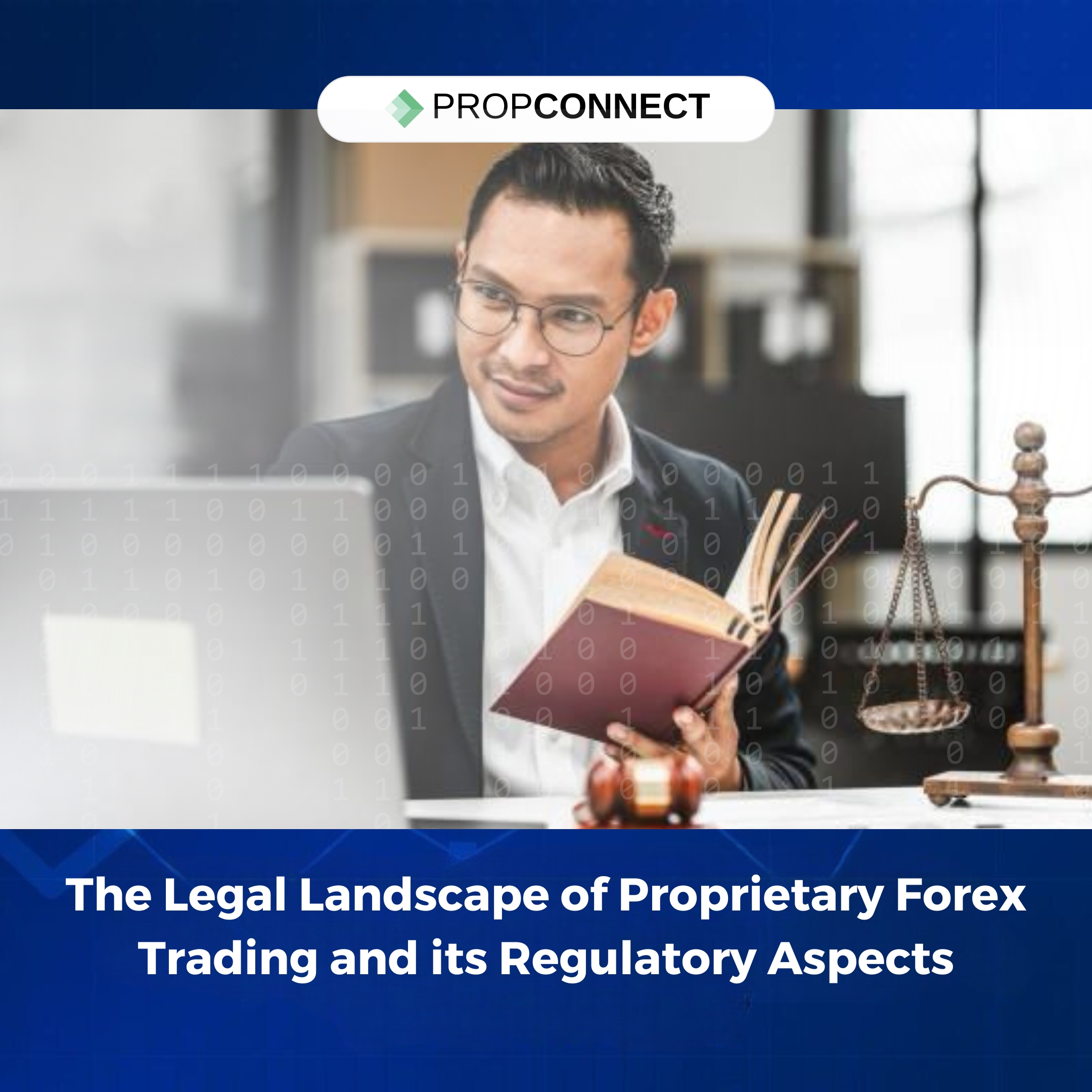Articles
The Legal Landscape of Proprietary Forex Trading and its Regulatory Aspects
Traders and organizations need to stay up-to-date with the latest regulatory developments in their individual jurisdictions in order to comply with licensing requirements, risk disclosure requirements, and anti-money laundering legislation.

In proprietary forex trading, sometimes known as "prop trading," people or businesses trade using their own capital as opposed to that of their clients. Although the possibility of financial freedom attracts many people to the world of prop trading, it is crucial to understand the legal framework that governs this activity. In this article, we will examine the legal issues related to proprietary forex trading as well as the rules that traders and companies have to follow.
Regulation of Proprietary Forex Trading: Different jurisdictions have different laws governing prop trading. For example, the National Futures Association (NFA) and the Commodity Futures Trading Commission (CFTC) are major players in the supervision of foreign exchange trading in the United States. To ensure fair and transparent procedures, proprietary trading firms must register with the NFA and follow stringent guidelines.
Organizations like the European Securities and Markets Authority (ESMA) and the Financial Conduct Authority (FCA) in the United Kingdom influence the regulatory environment in Europe. To preserve market integrity and guarantee that prop trading operations are carried out appropriately, these regulatory agencies set and implement regulations.
Respect for Know Your Customer (KYC) and Anti-Money Laundering (AML) regulations:
Similar to other financial establishments, proprietary trading companies are bound by anti-money laundering (AML) policies and are required to establish comprehensive know-your-customer (KYC) protocols. These controls are in place to stop illicit financial operations, including the financing of terrorism and money laundering. Prop traders and organizations need to make sure that their clients are who they say they are, and they also need to report any suspicious transactions to the appropriate authorities.
Risk information and client protections: Ensuring that traders and businesses give their clients sufficient risk information is one of the most important legal components of prop trading. Since proprietary trading entails a high degree of risk, clients should be informed that they could suffer large financial losses. It is crucial to communicate openly and honestly with clients regarding the dangers involved in forex trading in order to build trust and adhere to legal obligations.
Moreover, regulatory agencies frequently enforce specific customer safeguards, such as keeping segregated client accounts. By ensuring that customer funds are kept apart from the firm's capital, this lowers the possibility of theft or misuse.
Qualifications and Licensing Requirements: Prop trading companies and individual traders may be needed to achieve qualifying standards or receive particular licenses in some jurisdictions. A certain amount of financial stability, professional skill, and commitment to ethical norms are a few examples of these needs. By ensuring that only eligible people and businesses engage in forex trading, licensing promotes market integrity and protects investors.
Cross-Border Considerations: Prop trading firms frequently conduct business internationally due to the global nature of the FX markets. Comprehending and adhering to the legislation of many jurisdictions is vital to managing the legal ramifications of international commerce. Businesses need to take great care to make sure that their operations are compliant with all international agreements and regulatory frameworks, as well as that the laws of the jurisdictions in which they operate are followed.
In conclusion, proprietary forex trading carries a complicated web of legal considerations along with the possibility of financial gain. Traders and organizations need to stay up-to-date with the latest regulatory developments in their individual jurisdictions in order to comply with licensing requirements, risk disclosure requirements, and anti-money laundering legislation. Market participants can protect their own interests and those of their clients while fostering a transparent and safe trading environment by navigating the legal elements of prop trading with caution and integrity.